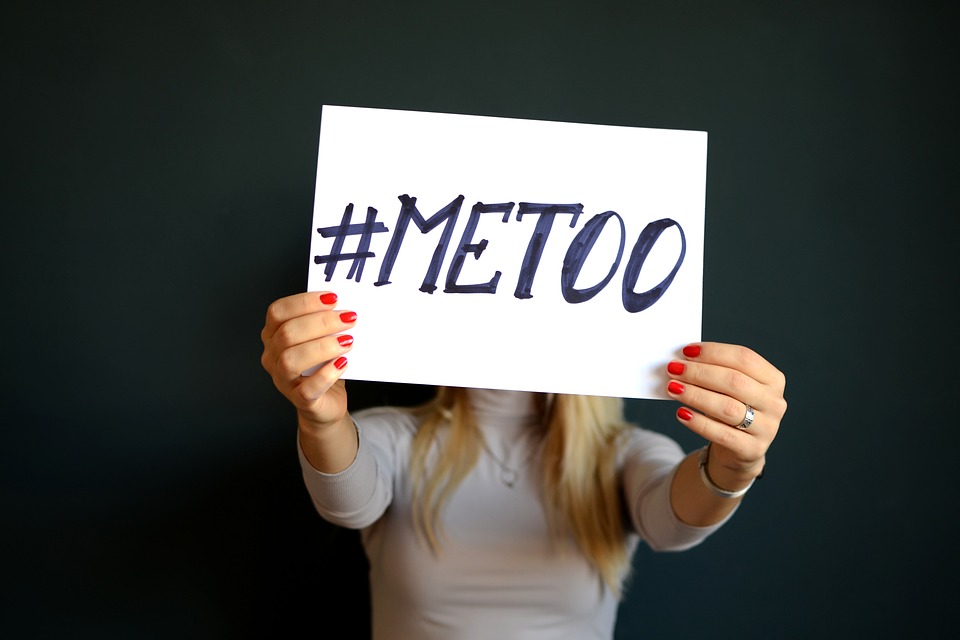As sexual assault accusations continue to propagate in Hollywood and on Capitol Hill on the wings of the #MeToo movement, it begs the question: how hard is it to understand? Sexual assault is a violation of human privacy, human sanctity, and human rights, and, for the longest time, nobody really seemed to care. Sexual assault has been treated as an issue of status before it has been addressed as a violation of the most basic human rights. Yet in that vein, the baseline issue with sexual assault culture, whether on a global scale or at Belmont Hill, is not that we fail to condemn such harassment or to treat it with indignation; it is something far more frustratingly fixable: ignorance. For all its success as an educational hotspot, Belmont Hill needs to become better educated with regards to sexual assault.
Theo Why ‘18 puts it best: “It isn’t an issue of ‘sexual assault is bad’; the problem is that every component member of a case of sexual assault is, to varying degrees ignorant of how to deal with the situation.” Accusations are a slippery slope for the accuser and the accused, and onlookers often struggle to decide how to deal with the physical and emotional stigma of being sexually assaulted. Therein lies the biggest issue with sexual assault culture: we have created an environment that makes individuals doubt the validity of their own accusations or those of others. The basis of the #MeToo movement lies in that women who were victimized by producing giant Harvey Weinstein feared the detrimental impact of confessing on their careers. In a similar vein, the trend of victim blaming places the burden of responsibility on an individual that is already charged with facing their own hurdles. Indeed, American sexual education is wont to exclude the emotional connotations of sex and sexual assault, even in the paltry 13 states that mandate medically accurate sex ed. Massachusetts is one of those 13 states, but few, if any, private or public institutions discuss how sexual assault victims face depression, dissociation, and post-traumatic stress disorder (PTSD), each of which can entail traumatizing nightmares, flashbacks, anxiety, hopelessness, and more. Catholic schools skirt the issue of consent by avoiding “taboo” topics like rape and sexual assault. Even schools like Belmont Hill fall victim to the fallacy of failing to reach beyond the hard, objective facts, obscuring the emotional aspect of sexual assault and relationships in general.
“The baseline issue with sexual assault culture, whether on a global scale or at Belmont Hill, is not that we fail to condemn such harassment or to treat it with indignation; it is something far more frustratingly fixable: ignorance.”
Belmont Hill’s sexual education program is noble, but it falls woefully short of providing the education necessary to yield consistently strong characters in regards to sexual assault. The Belmont Hill sexual education program is a relatively cursory, 8th-grade-only program that does not cover nearly the same bases that does Winsor’s 7-year health program. Spenser Nuzzo ‘18 says that, despite the fact that he arrived in 10th grade and did not experience the sex ed program here at Belmont Hill, “it’s clear that the school teaches little in its sexual education program about what it’s like to be in an actual relationship and deal with real-life problems that involve emotions and unwholesome intentions.” From that standpoint, it is easier to see exactly why Belmont Hill students tend to have a vague idea that sexual assault is bad, but don’t tend to discuss or truly comprehend its connotations.
Sexual assault isn’t a common issue at Belmont Hill, whether in regards to a victim or a perpetrator. Perhaps it is for that reason that the issue is often skirted outside of niche communities across the school. With that in mind, certain courses and certain teachers do give students the opportunity to face the difficult issue of sexual assault. Donavan Payne ‘18 sings the praises of Dr. Tift’s Literature of Social Reflection class, a junior elective that focuses much of its core curriculum on sexual assault. Using the novel Tess of the D’Urbervilles, Dr. Tift “does a wonderful job raising a sensitive issue and gets people talking about it, which is an extremely important first stem when it comes to raising awareness about sexual assault.” Donavan agrees that insensitivity to sexual assault at Belmont Hill stems from ignorance and ambiguity and agrees that the teachings of Social Lit “should be expressed to the rest of the community in whatever way, shape, or form necessary.”
The general consensus around Belmont Hill campus is that the student body would be accepting of a sexual assault victim and would readily condemn a sexual offender. However, a handful of students questioned just how actively the community would enforce the latter statement. Owen Pickette ‘18, in particular, feels that “in the culture of sexual one-upmanship at Belmont Hill and that exists in society on the whole, it’s easy to blur the line between something you can high-five your buddies about versus something that violates the basic principles of human rights.” Indeed, several Belmont Hill boys reported that their peers had partaken in actions that they themselves would subjectively question; where do we draw the line as a community? There exist pressing questions such as these, and the overarching opinion is that Belmont Hill needs a more clearly defined stance; it needs a better, more comprehensive sexual education program that accounts for the intangible; it needs to draw a line with regards to extracurricular activities and take accountability for the questionable actions of its students; and it needs to talk about the issue. Nothing is more important for Belmont Hill’s sexual assault culture than spreading it, propagating it through the curriculum, mandating an understanding of the issue. Only then can we move forward as a community, uniting in a more cohesive effort to raise awareness and discourage sexual assault in society.





